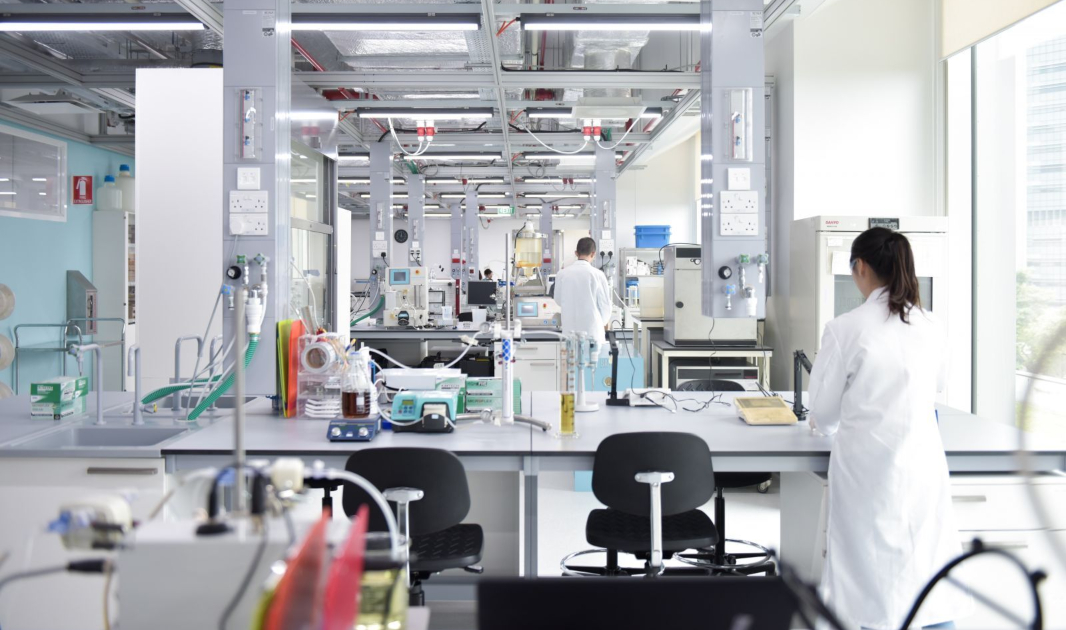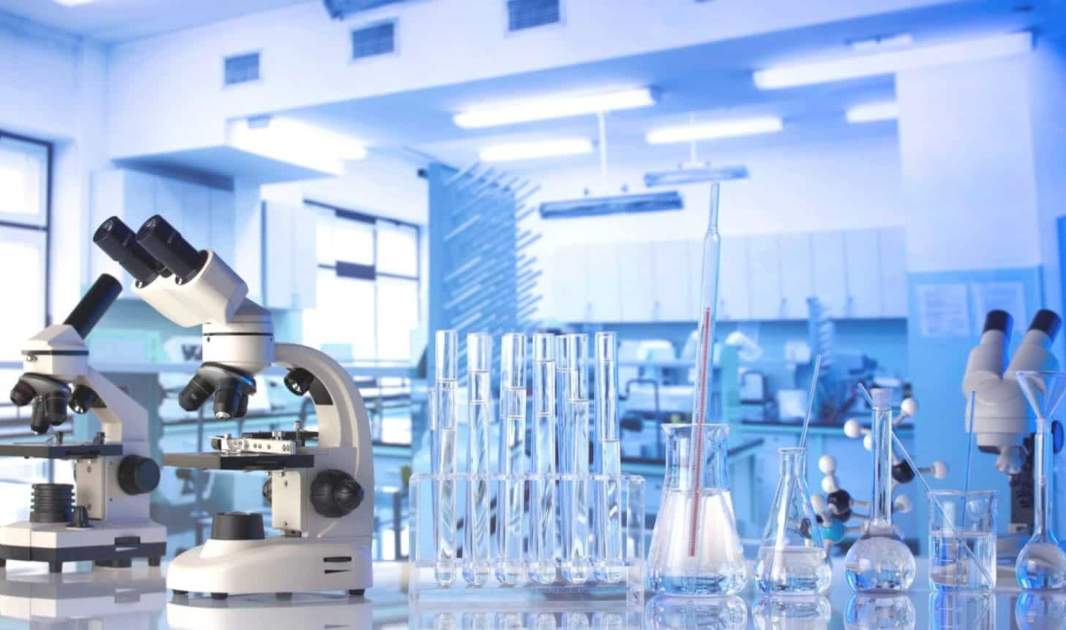Whether you’re setting up a high school chemistry classroom, a police forensics lab or building a medical cannabis research facility, it’s crucial to plan and design your laboratory layout with careful consideration.
Not only do science labs have to meet certain safety and accessibility standards, but they should also be designed to meet the specific needs of the type of lab in question.
Characteristics of a good science lab
At Evolve, we know that the right lab environment can increase productivity and ignite new creativity. We also believe the best designs keep people safe while also maximising efficiency and anticipating a wide variety of scientific procedures and processes.
Even if you require a lab for a single purpose, such as medical cannabis production, you’ll want to consider equipment and features that could take your business to the next level. No matter what type of lab you’re designing, we’re here to help you.

4 factors to consider when designing a laboratory
1. Space for Work and Equipment
The first thing you want to consider when designing a laboratory is space. Are you building a new facility from the ground up? Are you renovating an existing space? Do you have lots of room to work with, or do you need to get creative with your space’s limitations? When designing a lab, it’s important to account for your workers as well as your equipment. Make sure people have enough room to work safely. Create a laboratory floor plan with clear traffic flows toward emergency exits.
If you have mobile equipment, make sure your paths are large enough to accommodate it. Leave space in other areas of your lab so your mobile equipment has multiple places to reside without blocking walkways or doorways. Remember to account for storage needs as well as workstations. When equipment is not in use, where will you safely store it?
2. Proper Ventilation Systems
Proper ventilation is important in any science lab, but it’s vital if your work will produce harmful or toxic fumes. A fume hood from Evolve can protect your team from breathing in dangerous gases.
Make sure to incorporate fume hoods into your lab design if you plan on doing work that produces harmful fumes. You’ll want to decide which specific fume hoods are necessary for your work. If you anticipate using your fume hoods for multiple purposes, consider choosing a ducted fume hood so you don’t have to worry about using the right filters for a ductless model.
3. Proper Plumbing, Gas, and Electrical Fixtures
Every lab needs standard lab benches, also known as workstations or workspaces. These basic models can be easily customised with many useful features, including plumbing fixtures, electricity switches gas pipes and burners.
When designing your lab, you’ll want to determine where the electrical outlets, gas lines, and plumbing fixtures will be, and include laboratory casework to make use of those features. Our team at Evolve has worked with many companies to create custom workspaces that incorporate these fixtures.
4. Safety and Accessibility
Safety and accessibility features can and should be incorporated into your laboratory design, not added on later as an afterthought. All the lab furniture supplied, fitted and installed by Evolve meets international industry standards for safety.
Accessibility is another important factor in any science lab. Walkways should be wide enough for wheelchairs, and fume hoods should be safe to use for people of all heights. Include accessible signage and safety messaging. Make sure that any alarm systems are not just sight-based or sound-based, but both.

Design ideas for different labs
The type of lab you’re planning will influence its layout and design. Different types of labs require different design features. However, all labs need to prioritise safety, space and accessibility. Common design considerations for various types of labs include:
- Biology labs: Clear casework for displaying specimens
- Chemistry labs: Multiple fume hoods for different chemical processes; peg boards for beakers
- Pathology labs: Biosafety cabinets to prevent the spread of infectious diseases
- Cannabis production labs: Extra facilities for research and testing
- Medical research labs: Equipment for the analysis of various biological samples, such as blood or urine, to assist in the diagnosis and treatment
- Manufacturing labs: Designers should remember these are usually small pilot plants, in which production is gradually scaled up
Why work with Evolve?
Our specialists have all the skills needed to allow your new science laboratory project to thrive. From initial design, supply and installation of furniture to providing all associated building services, Evolve has the in-house expertise to deliver on time and within budget. We can help you determine the best way to make use of your available space while prioritising safety, space, and accessibility.
Evolve has supplied and fitted lab furniture and accessories to a range of companies and institutions over the years. Major projects in recent years include:
- Brewing giant Farsons
- Dubai Police forensic science laboratories
- University of Malta
- Semiconductor firm ST Microelectronics
- Pharma companies Aurobindo, Actavis and Pharmacare
- European Commission science laboratories in Brussels
- Malta College of Arts, Science and Technology
- Montekristo Wine Estates
- Environment services agency Wasteserv
- Malta’s state-run public health laboratory
We also offer a range of additional services, including fume management, network cabling, electricity distribution and testing, plumbing and testing both for water and gases as well as all drains and speciality gases.
We’re ready to be by your side to help you design, equip and maintain a fully EU-compliant lab for your next project. For a complete, professionally-delivered project from initial design through to completion, get in touch with Evolve today.
You might also be interested in
Be the first to hear our latest news, ideas and initiatives from Evolve
Something else we can help you with?
Evolve is proud to be the fastest-growing science company in Malta and offers a comprehensive range of scientific products and services, from supplying the latest microscopes to routine equipment maintenance and the turnkey installation of medical cannabis facilities.
Our work is shaped to suit you and your needs whether you work in pharmaceutical manufacturing, healthcare, semiconductor production, agriculture, medical cannabis, food science, environmental monitoring, education or forensics.
To find out more about our full range of science-led services, please, visit our Support Centre page.


